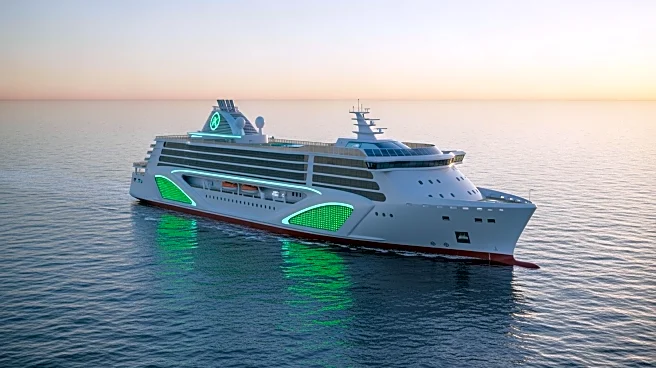What's Happening?
Cleaner-fuel burning ships accounted for 37% of cargo vessel orders in the first 10 months of 2025, consistent with the previous year. This stability comes amid uncertainty about global rules for reducing
maritime emissions. The overall gross tonnage of vessel orders decreased compared to the previous year, reflecting a cautious approach by buyers due to the delayed decision on carbon-reduction targets by the International Maritime Organization (IMO).
Why It's Important?
The maritime industry is a significant contributor to global trade and greenhouse gas emissions. The consistent share of orders for less polluting ships indicates a sustained interest in reducing the environmental impact of shipping. However, the delay in setting global carbon-reduction targets by the IMO creates uncertainty, potentially affecting future investments in cleaner technologies. Major shipping lines like Maersk and Hapag-Lloyd continue to pursue carbon reduction efforts, highlighting the industry's commitment to sustainability despite regulatory delays.
Beyond the Headlines
The delay in the IMO's decision on carbon-reduction targets underscores the challenges of achieving international consensus on environmental regulations. This situation highlights the need for proactive measures by individual companies and countries to address climate change. The maritime industry's reliance on alternative fuels like liquefied natural gas and methanol reflects ongoing efforts to transition to more sustainable energy sources, although challenges related to fuel availability and cost remain.









